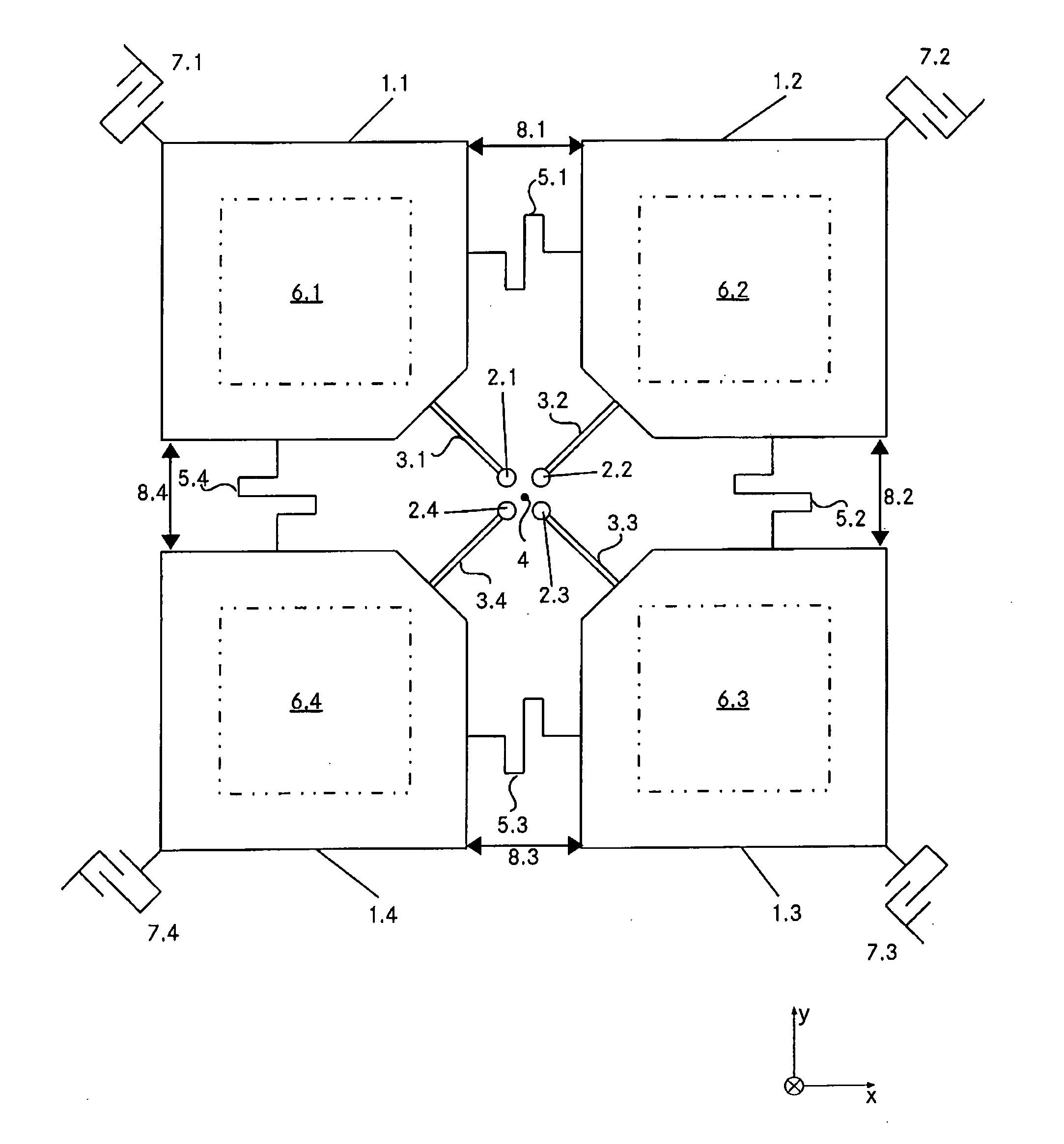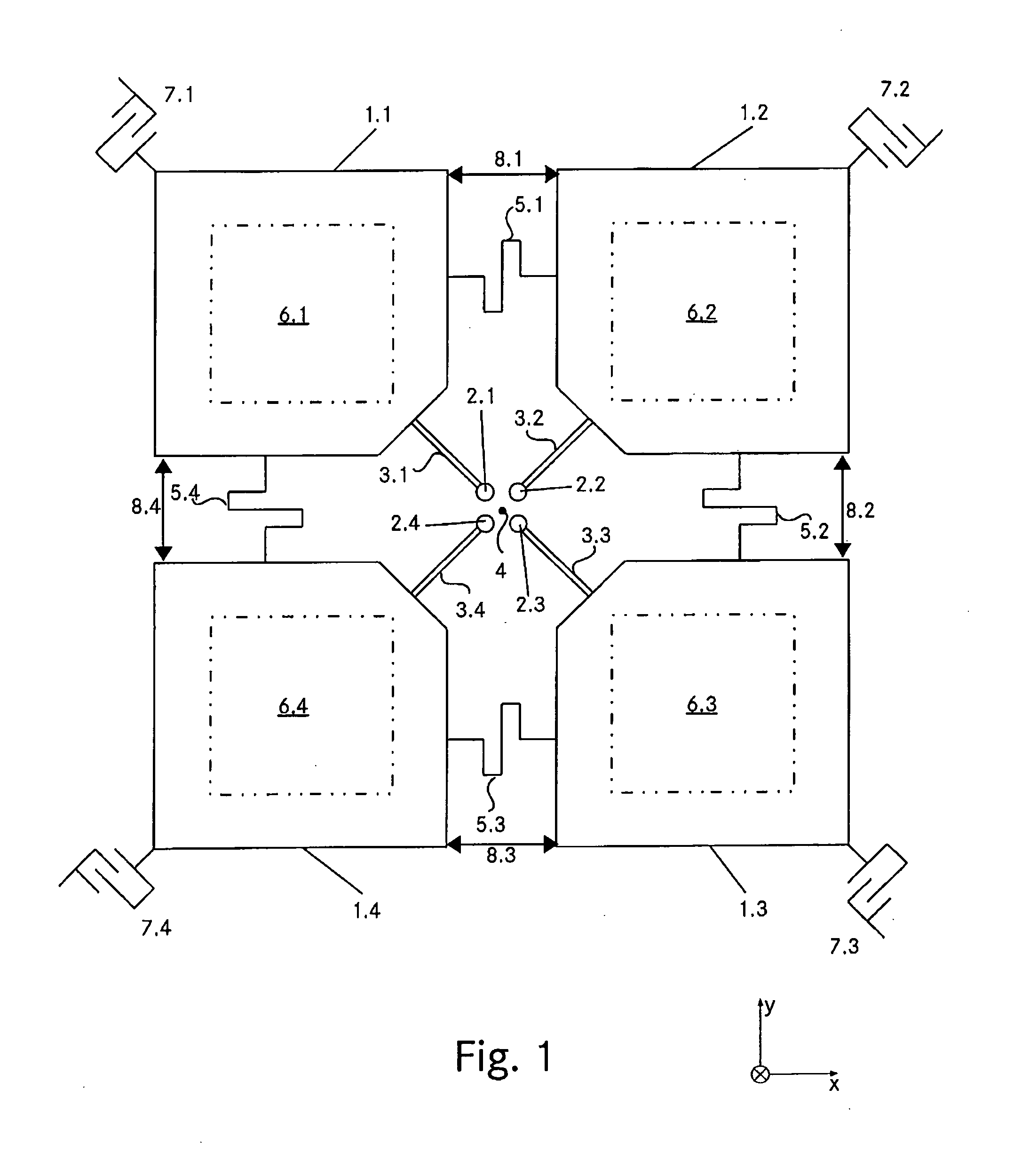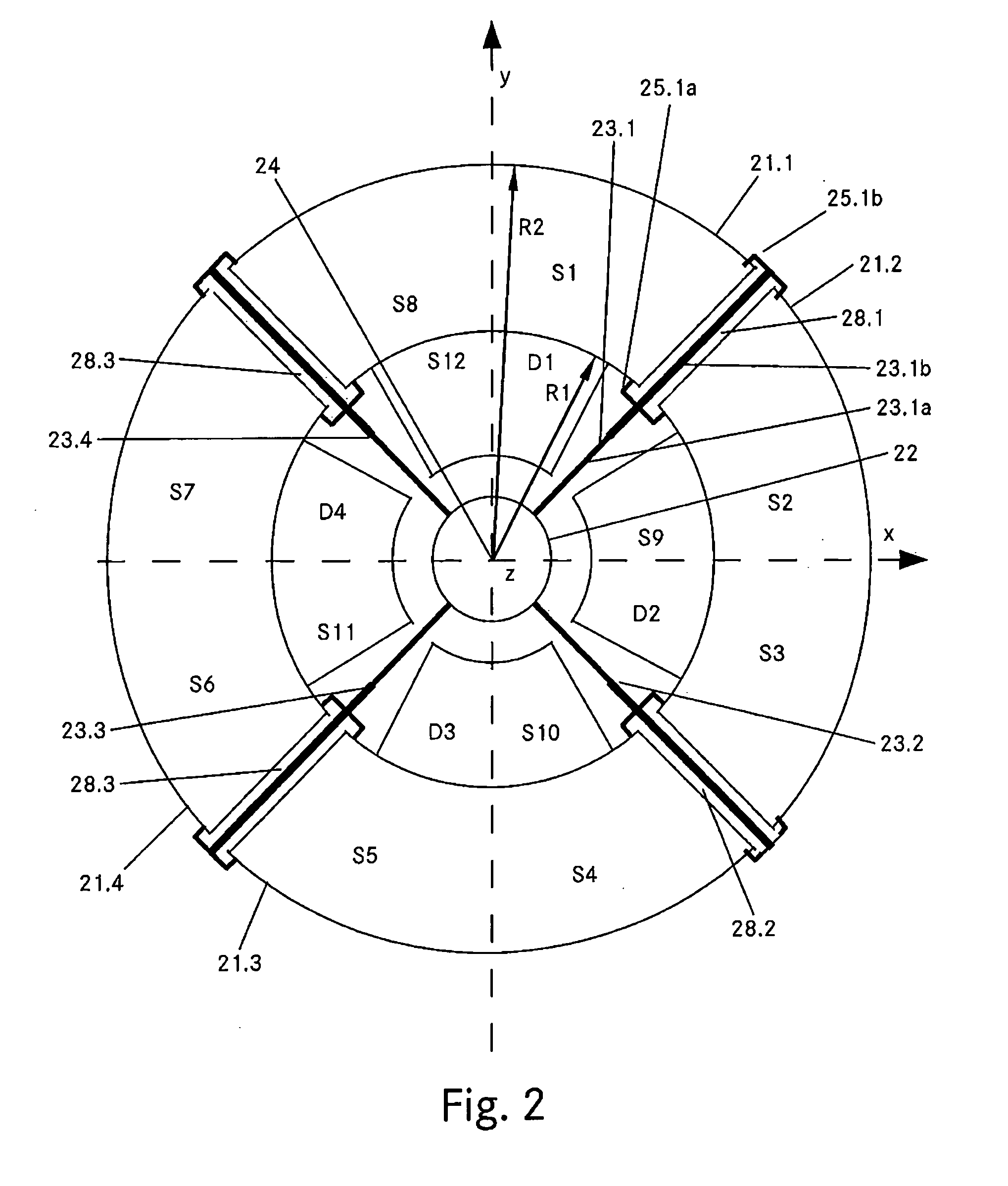Multiaxial micro-electronic inertial sensor
a multi-axial, micro-electronic technology, applied in the direction of acceleration measurement using interia force, speed measurement using gyroscopic effects, electric/magnetic means, etc., to achieve the effect of easy control of geometric design
- Summary
- Abstract
- Description
- Claims
- Application Information
AI Technical Summary
Benefits of technology
Problems solved by technology
Method used
Image
Examples
Embodiment Construction
[0096]FIG. 1 is a very rough geometric diagram of a first embodiment that serves to illustrate the basic principle and the functional elements that may be used in the scope of the invention.
[0097]There are four proof-mass elements 1.1, . . . , 1.4, which may have a shape that is more or less a square. The four proof-mass elements 1.1, . . . , 1.4 together define the proof-mass system. Each one of the proof-mass elements 1.1, . . . , 1.4 is directly connected to an anchor structure. In the present embodiment, the anchor structure comprises four anchor posts 2.1, . . . , 2.4 placed close to the centre of the proof-mass system. The anchor posts 2.1, . . . , 2.4 rise from the substrate (below the proof-mass elements 1.1, . . . , 1.4) to the level of the proof-mass system. Each of the proof-mass elements 1.1, . . . , 1.4 is connected to its anchor element 2.1, . . . , 2.4 by means of a suspension element 3.1, . . . , 3.4. According to the embodiment of FIG. 1 the suspension elements may ...
PUM
 Login to View More
Login to View More Abstract
Description
Claims
Application Information
 Login to View More
Login to View More - R&D
- Intellectual Property
- Life Sciences
- Materials
- Tech Scout
- Unparalleled Data Quality
- Higher Quality Content
- 60% Fewer Hallucinations
Browse by: Latest US Patents, China's latest patents, Technical Efficacy Thesaurus, Application Domain, Technology Topic, Popular Technical Reports.
© 2025 PatSnap. All rights reserved.Legal|Privacy policy|Modern Slavery Act Transparency Statement|Sitemap|About US| Contact US: help@patsnap.com



